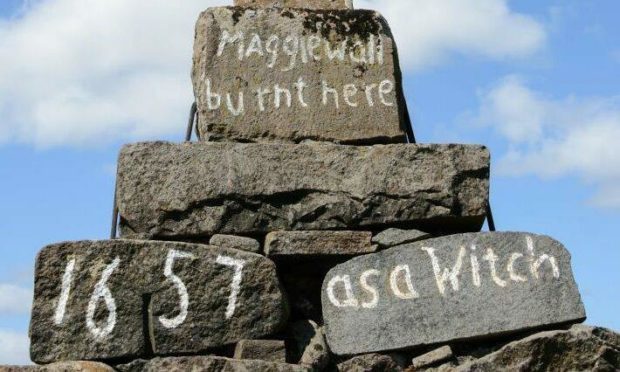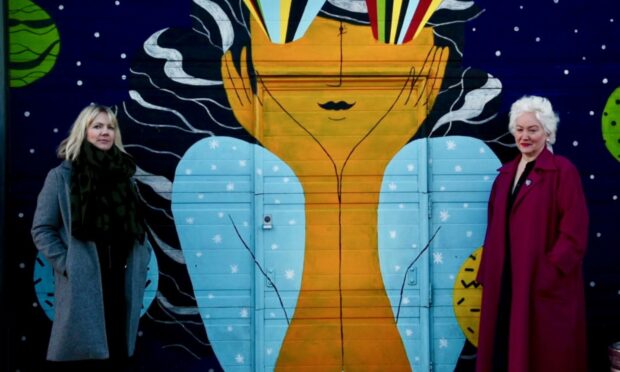A campaign to win a pardon for thousands of women brutally killed under a 16th Century law in Scotland could be resolved by an act of “mercy” from the Queen.
MSPs want the Scottish Government to explore how the historical wrongs could be put right through the courts – or by First Minister Nicola Sturgeon asking the monarch for a pardon.
They were examining a petition by Dundee-based lawyer Claire Mitchell QC for the first time in parliament.
Ms Mitchell wants a pardon, memorial and an apology to address the horrifying legacy of torture and persecution, mostly endured by women between 1563 and 1736.
‘At killing witches, we excelled’
“In comparison to elsewhere in Europe, where witch trials also took place, Scotland had approximately five times the number of cases than elsewhere in Europe during this time,” she told MSPs in her petition.
“Alas, at finding and killing witches, we excelled.”
The campaign began on International Women’s Day last year.
Ms Mitchell said she was standing with fellow campaigner Zoe Venditozzi in Edinburgh city centre when they realised how few statues there are to women.
It jarred with the knowledge 300 or so people were killed as witches in the now drained Nor Loch below Edinburgh Castle, now enjoyed as Princes Street Gardens.
In a letter to parliament, she explained how periods of “satanic panic” led to nearly 4,000 people being accused as witches.
Tortured and burned
Around 85% were women, who were routinely tortured.
MSPs were told around 2,500 were executed by strangulation and burning at the stake.
In 2019 Edinburgh University published an incredibly detailed map of all known people accused of witchcraft in Scotland, bringing names and personal details together in one place.
The petition could follow a recent example where Holyrood passed the Historical Sexual Offences. More recently, MSPs confirmed the intention to pardon miners convicted in the 1984 strike.
David Torrance, SNP MSP for Kirkcaldy, said the committee could look at a specific case to take forward for review.
North East Conservative MSP Tess White said: “It might be historic but it is horrific what happened – 2,500 people killed, mainly women.
“I support my colleague in having a case looked at.”
Labour MSP Paul Sweeney said the process could be quicker if the First Minister used her powers to ask for “mercy” through the Queen.
“It seems like a fairly straightforward exercise to write to the Queen to request that,” he said.
Royal Prerogative of Mercy
The Scottish Government told the committee the First Minister can recommend to the Queen to grant a pardon through the Royal Prerogative of Mercy.
But only a court can quash a conviction.
The committee heard that route would involve the Scottish Criminal Cases Review Commission.
On the day the petition was heard, 3,414 people had backed their campaign.
There are already memorials in Salem, US, as well as in Norway and Germany, where women suffered.
Who were the women accused of witchcraft?
The last person tried and executed for witchcraft in Britain was called Janet Horne.
She was from Dornoch in the Highlands where she was jailed with her daughter in 1727.
A history of their lives, described by a local museum, records how they were reported by neighbours.
They were said to be devilish and claimed Janet had turned her daughter into a pony.
It is believed Janet showed signs of what people would now call dementia and her daughter had a deformity in her hands and feet.
A trial by the sheriff-depute of Sutherland was quickly held with both found guilty. The daughter apparently fled but Janet was paraded through town, tarred and burned.
Another earlier infamous “trial” was set up for Helen Guthrie, a Forfar woman who was said to have boasted of supernatural powers to terrify her neighbours.
She threw accusations back at other women in the town, including cannabilism. Many of them were tortured into confession.
Guthrie was executed on November 14 1662.
The map by Edinburgh University shows men were also tried and executed all over the country.
But missing from the map is Maggie Wall, whose name features on the only monument of its kind in Scotland dedicated to a single “witch”.
The memorial, which sits by the roadside around half a mile south-west of Dunning, has the words “Maggie Wall burnt here 1657 as a witch” written in white letters.


